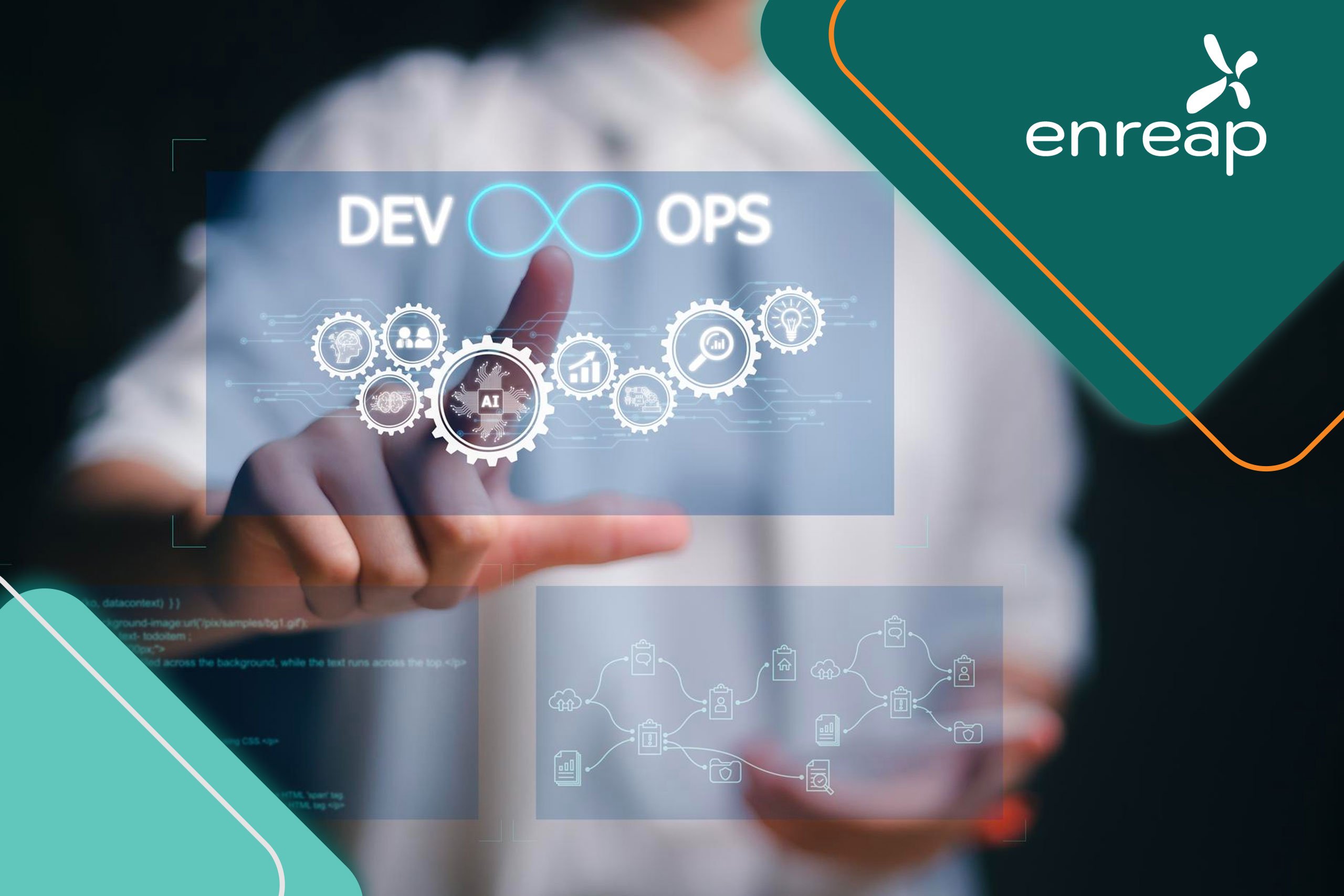We are moving into a world where software defines nearly every human experience. Whether it’s driving or shopping, entertainment or education, banking or healthcare, there is a steady progress of digital-only experiences that challenge the traditional dominance of physical business models.
The COVID-19 pandemic accelerated this trend of digitalization. In 2022 alone, Gartner estimates that the total IT spending will surpass USD 4.4 trillion globally.
However, the digital economy has also brought its own share of challenges from a software perspective. Enterprises are under pressure to deliver new features faster and operate their digital channels with more agility to adapt to disruptive market trends quickly.
This has led to the massive paradigm shift from traditional software development methodologies to agile approaches spearheaded by DevOps practices.
DevOps Practices – A Value-Adding Philosophy
Bringing together operations and development teams and creating a common set of standards in development, processes, and delivery practices have pivoted DevOps into one of the most widely recognized initiatives in modern software development. But studies show that nearly 75% of all DevOps initiatives fail to deliver on expectations.
Why is that? Why does an approach which helps enterprises solve one of their most gruelling business challenges fail at such a large scale globally? The primary reason is the misunderstanding of DevOps as a core-technical software delivery mechanism.
DevOps practices are more than just a CI/CD pipeline and a set of tools and platforms. It is a philosophy focused on delivering business value and traverses people, processes, and technologies to build the most profitable software delivery ecosystem for businesses in the digital era.
Let us examine how DevOps practices has ascended to a critical element of modern digital infrastructure for enterprises.
DevOps Brings a Cultural Transformation
In traditional software development projects, teams focus on their respective outcomes alone and work with less collaboration. DevOps, however, is a radical shift from this paradigm.
It unifies the development and operations team and facilitates seamless collaboration to achieve shared objectives. Individual or team tasks do not lose their prominence. Still, every team or team member is made aware of the need to deliver software faster, with higher quality standards, and with repeatable practices.
This requires them to address dependencies more diligently and share knowledge more enthusiastically, leading to an overall positive impact on team culture. It sets the foundation for a more progressive technology and process-driven business model that eliminates complexity through collaborative work efforts.
DevOps Is Not Just for Cloud-Native Application Development
Most enterprises mistake DevOps as an approach tailored exclusively for cloud-native application development. It is essential to know that building cloud-native applications does bring several advantages. In fact, DevOps was a philosophy that first came into existence in companies with their digital infrastructure built on the cloud.
But this doesn’t mean that DevOps is a cloud-exclusive approach. Any enterprise technology environment that can seamlessly allot resources to test and deploy software versions repeatedly can implement DevOps.
A successful DevOps practices strategy requires a reliable process framework and people management practice guaranteeing resource availability. Any failure of either of these elements will result in a failed DevOps implementation, irrespective of whether it is cloud-native or on-premises.
The extra advantage that a cloud-native application development initiative has is dynamic resource availability and scalability without the need for manual intervention.
DevOps Creates Business Value by Eliminating Silos
We have seen how DevOps unifies the operations and development team to collaboratively build technology that drives modern digital experiences for enterprises.
From a business standpoint, the operations team has a bigger role as they are tasked with ensuring critical availability and performance metrics of digital applications used by end customers. They prefer the stability of the deployed software over any other parameter to ensure customers get the best experience at any time.
For developers, however, speed is crucial as they love to innovate continuously and roll out successful features rapidly to the market. However, in a traditional approach, these two traits can result in the technology being built in bits and pieces due to siloed team preferences.
DevOps can step in to unify these teams and strike the right balance of speed and release quality through automation, standardization, and intelligent resource management. This helps businesses to extract better value from their digital channels faster without worrying about risks to customer experience.
In a Nutshell
DevOps practices lays the foundation for a streamlined software delivery channel in any business that wishes to offer seamless digital experiences. By bringing together people, processes, and technology, DevOps builds the underlying framework of agile application development that eliminates risk and embraces faster innovation at scale.
Achieving the desired level of process maturity and DevOps compatibility is a complex endeavour that often worries the C-Suite. This is where enreap can help resolve the dilemma. Over the years, we have helped some of the world’s most promising businesses embrace DevOps flawlessly and empowered them to achieve better ROI from their digital offerings.
Get in touch with us to explore how to prepare the most strategic roadmap for DevOps implementation in your software development initiatives.

